
THE TEMPTATION is great. The risks are remote. Would you cheat if you knew you could get away with it? Many do, thinking they’ve done no wrong. We are all capable of cheating.
Floyd Landis stands atop the dais in Paris. Some two million spectators cheer him on and celebrate his victory in the 2006 Tour de France. His triumph is broadcast around the world. The shy Mennonite kid from Farmersville, Pennsylvania had done good.
Days before Landis’ victory, millions of TV viewers in 186 nations watched one of the great sporting displays. Landis who had been left far behind on stage 16 of the three-week race came back the following day and annihilated his opponents. From the first mountain he cracked all of the favourites and left them far behind on his epic 200km ride. No one could remember such a dominant display. No one could recall a time when one man was so much better than everyone else. But Landis had a distinct advantage.
Landis was a cheat.
After the second drug test confirmed the presence of a skewed testosterone/epitestosterone ratio, Landis was stripped of his Tour de France title and fired from his Phonak cycling team. He appealed the decision, vigorously defended the charges and for almost four years maintained his innocence. Anyone who witnessed Landis’s denials and protestations would never have doubted that he truly believed, in his own mind, that he had done nothing wrong. For years, Landis defended himself, to anyone who would listen, with all the righteousness of someone who had been wrongly accused. He was bright, he was eloquent, he was devout and, therefore…surely he was innocent…?
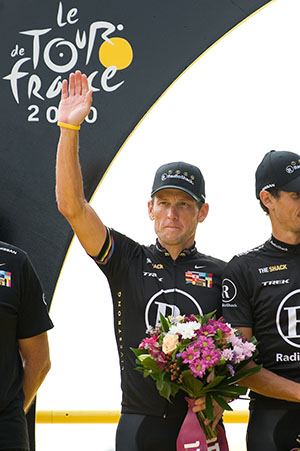
Then, out of the blue in May 2010, he admitted to systematic doping. In fact, Landis completely reversed his position and not only came clean, he accused everyone of cheating, including Lance Armstrong, the seven-time winner of the Tour de France. Surely not!
The Tour de France had spent a decade fighting to rebuild its shattered reputation from its low point in 1998, when the Festina Watches cycling team was thrown out when drugs were found in their team car. Enter Lance Armstrong. His 1999 victory, after having overcome life-threatening testicular cancer, was a result that even the most optimistic fan could not have scripted. In a climate of disillusionment and cynicism here was a champion everyone could cheer and believe in.
But now, coinciding with the Landis controversy, other past champions were confessing to cheating. For example, Bjarne Riis, the 1996 Tour champion, admitted to doping as did Erik Zabel, a champion sprinter and winner of 12 Tour de France stages.
Landis thought he had gotten away with it. Or maybe he thought he had done nothing wrong. Like Ben Johnson, who won the 1988 Olympic 100-metre final, when they finally admitted to doping they also accused others of taking drugs to enhance their performance and complained that the drugs were simply to keep pace with other top athletes.
To Even The Playing Field?
It seems that this compulsion to fix some perceived injustice or unfairness sits behind many cases of cheating. More so, it appears that many people cheat not to get ahead but to keep up. Neurologist Anjan Chatterjee says “cheating is especially easy to justify when you frame situations to cast yourself as a victim of some kind of unfairness — then it becomes a matter of evening the score; you’re not cheating, you’re restoring fairness”.
If this is so, do we all have the capacity to cheat?

David Callahan, author of The Cheating Culture: Why More Americans Are Doing Wrong to Get Ahead, says, “some people cheat to become famous but mostly they cheat to keep up, or to get by.
“That’s why a college student who downloads a plagiarised paper off the Internet doesn’t want an A paper, he wants a B paper.”
“He’s not cheating in school to win an essay contest; he just wants to pass the class and move on.” Callahan describes a nation that’s obsessed with getting rich and terrified of losing out and says “if staying afloat takes a little cheating, many people are willing to do it”.
Callahan also likens cheating to a contagion, that is, the more people do it, the more it becomes accepted. The more it’s accepted, the more people do it.
Such views are backed up by researcher Dan Ariely who speaks about chinks in our moral codes in his Ted-Talk of February 2009. After much research he is able to say unequivocally that lots of people will cheat but qualifies this by adding that they will usually cheat only a little. Ariely found that people are not more likely to cheat as the incentives for cheating go up but that instead two forces are at play — firstly that people want to feel good about themselves, but, secondly, cheating a little does not damage people’s impression of themselves.
Ariely also found that when people are reminded about morality they cheat less. An honour or ethics code works in reducing cheating and when there is distance from the object (or we are removed from the cash) the incidence of cheating can double. This may help us understand why employees happily take home stationary from their workplace but would find it much harder to justify, to themselves, taking a few dollars from the cash register. As in the case of Floyd Landis and Ben Johnson, Ariely also found that when cheating is happening around us we become far more likely to cheat ourselves.
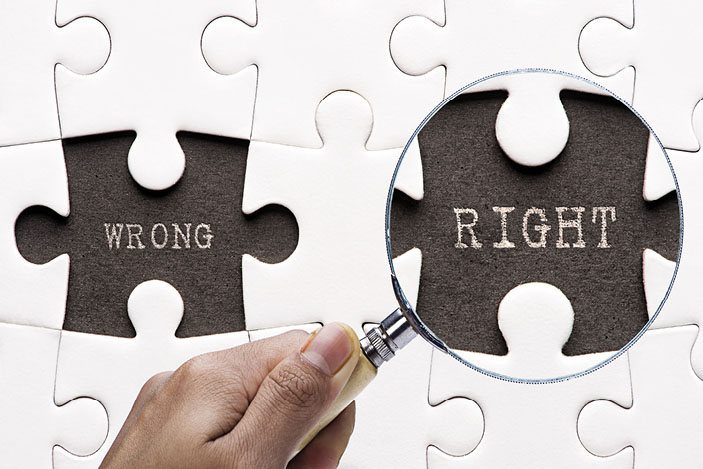
Ariely takes all of this research and uses it to explain why cheating and morally ambiguous behaviour are rife in the stock market and financial institutions.
People are paid a lot of money to see reality in a particular (distorted) way. There’s a distance from money itself through the creation of products like stocks, bonds, derivatives, securities and so on, and we have a social environment where others are behaving badly. Think Enron!
Experts like Charles Yesalis, a professor of health and human development at Pennsylvania State University believe that cheating has become more common and more accepted in recent years. He has studied the use of performance enhancing drugs for more than 25 years and states: “For the last 20 or 30 years, we’ve had this idea that there are only a few bad apples in the barrel, but in reality, in many, many different sports, there are only a few good apples.”
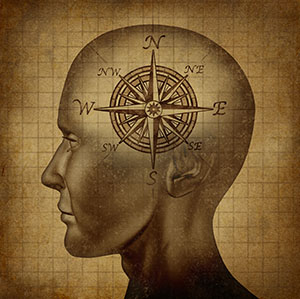
Callahan, (who blogs widely on the subject at cheatingculture.com) thinks cheating in one part of your life may lead to cheating in others. He goes on to postulate that those who cheat, say at school, may bring that behaviour into their adult and working life. Callahan also posits that cheating forces us to lie to ourselves and develop rationalisations for the cheating. From this point the more excuses you need to justify the behaviour the more compromised your ethical compass.
What are the rules?
It seems that the best way to discourage cheating is to be clear about the rules and to hold people accountable for following them. Organisations need to know what the standards are and must understand that they will be held to those standards
Somewhat surprisingly it also turns out that people are less likely to cheat when given a stern reminder not to.
But as David DeSteno, a psychologist at North-eastern University in Boston and co-author of the book, Out of Character, says, “there’s a battle between short-and long-term gains, a tension between the more virtuous choice and the less virtuous one”. That is, cheating a little may be natural but most people tend to follow rules they accept as fair. Therefore he argues the move from small infractions to a deliberate pattern of deception or fraud is more of a deliberate strategy.
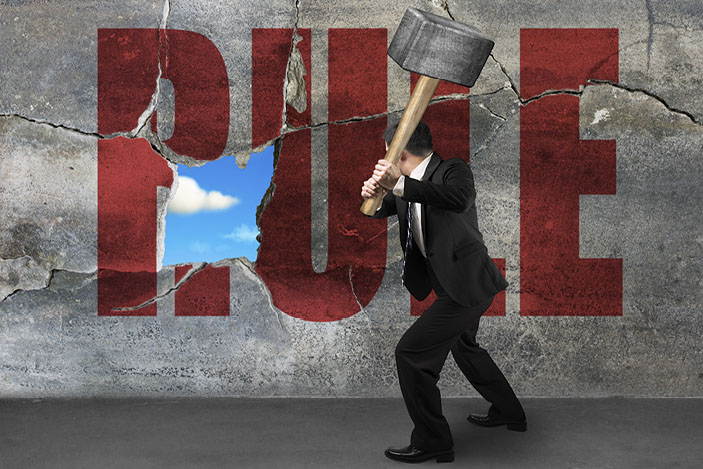
Woody Allen, plums this ethical minefield in his movie Crimes & Misdemeanours, where the protagonist has someone killed “for the greater good”. In the film Allen removes any likelihood of being caught and then asks, “can we live with the ethical consequences?” Can the end justify the means and if you remove punishment from our moral codes then what stops us from doing “wrong”? More importantly, Allen beautifully creates a situation where most people benefit from the murder and then asks us if the rational response is, in fact, murder. Of course there are just enough equivocations in the characters to make us question if there are moral absolutes. But whose are they?
Many argue that it is the responsibility of legislators to set behavioural codes but if this is the case then we relinquish any obligation to form our own moral standards or ethical framework.
Nixon said of the Watergate scandal “It’s not a lie if the President says it.” Maybe there are no moral absolutes. Callahan says that cheating has a corrosive effect on society. There is no doubt that Nixon’s behaviour in many ways represented the end of American innocence. Until that time the American people believed in the righteousness of their actions, the righteousness of their President. Watergate ushered in a cynicism and incredulity that had not been present beforehand.
Callahan also discusses the frequent cheating that went on during the Olympic Games in ancient Greece 2,500 years ago. Likewise, the Tour de France has always had cheats. Back when the Tour started in the early 1900s, the cheats made today’s sophisticated drug cheats look positively lame.
In the second ever Tour, the first four place getters were later disqualified for cheating — cyclists boarded trains to avoid whole stages, they had nails strewn across the road to puncture the other riders’ tyres and they had spectators wait in bushes to ambush opponents! But even then the pressures were immense as cyclists would ride through the night along mammoth stages of up to 490km on bikes without gears, all the while carrying their own tools. Worse still, much of the roads, particularly those over the Alps and Pyrenees were little more than goat tracks.
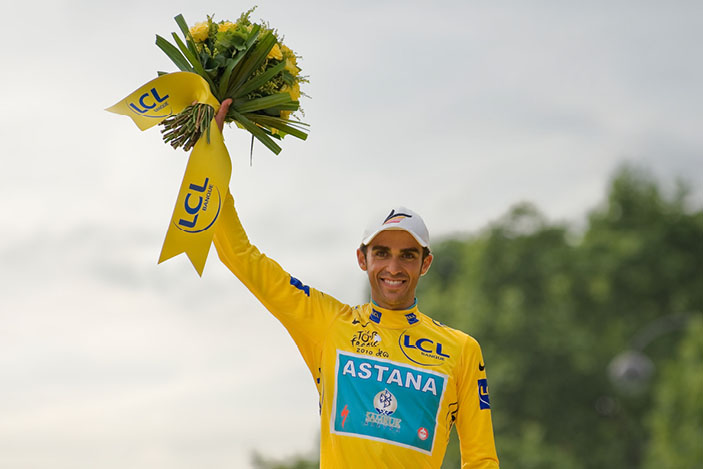
Today, the Tour de France has another champion under siege. Last year Alberto Contador was found with a small amount of buterol in his system. He claims it is the result of eating contaminated meat. The Spanish authorities believe him and have exonerated him, allowing him to race. Many other cycling federations disagree. The Tour de France would be poorer if Contador did not race. Did he cheat? More importantly, as some have argued, is it too hard not to cheat — are the rewards to high, the competition too hard, the standards of others too ambiguous and the pressure too great.
Is cheating inevitable?





















